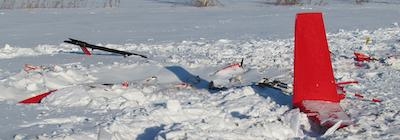Wed, Feb 20, 2019
Advertisement
More News
 Airborne-Flight Training 10.23.25: PanAm Back?, Spirit Cuts, Affordable Expo
Airborne-Flight Training 10.23.25: PanAm Back?, Spirit Cuts, Affordable Expo
Also: USAF Pilots, Advanced Aircrew Academy, ATC Hiring, Hop-A-Jet Sues Pan American is attempting a comeback. Aviation merchant bank AVi8 Air Capital, alongside Pan American Globa>[...]
 Airborne-Flight Training 10.23.25: PanAm Back?, Spirit Cuts, Affordable Expo
Airborne-Flight Training 10.23.25: PanAm Back?, Spirit Cuts, Affordable Expo
Also: USAF Pilots, Advanced Aircrew Academy, ATC Hiring, Hop-A-Jet Sues Pan American is attempting a comeback. Aviation merchant bank AVi8 Air Capital, alongside Pan American Globa>[...]
 Airborne 10.22.25: Rez Takes Plane, DJI v US Drone Ban, HK 747 Cargo Accident
Airborne 10.22.25: Rez Takes Plane, DJI v US Drone Ban, HK 747 Cargo Accident
Also: DHS Under Fire, Air New Zealand, ALPA Praises Bipartisan Bill, Spirit Budget Cuts The Minnesota Pilots Association has issued an advisory regarding overflights of the Red Lak>[...]
 Classic Aero-TV: Portrait of the U.S. Transportation Safety Institute
Classic Aero-TV: Portrait of the U.S. Transportation Safety Institute
From 2023 (YouTube Edition): Beauty Amongst Ghastly Federal Agencies Founded in 1971 and based in Oklahoma City, the Transportation Safety Institute (TSI) is a subsidiary of the U.>[...]
 ANN's Daily Aero-Term (10.21.25): Flight Check
ANN's Daily Aero-Term (10.21.25): Flight Check
Flight Check A call sign prefix used by FAA aircraft engaged in flight inspection/certification of navigational aids and flight procedures. The word “recorded” may be a>[...]
blog comments powered by Disqus




